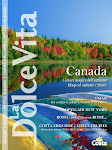All in all it was a depressing affair at the recent IATA Annual General Meeting in Kuala Lumpur, Malaysia. The Director General and CEO Giovanni Bisignani of IATA read out the shockingly bad statistics of the Industry and backed them up with a list reasons to quantify a $10.4 billion USD loss in 2008. Skyrocketing oil prices dominating the first half of 2008, followed by an equally dramatic global recession in the second half, being the prime causes for the quoted losses.
In 2009 IATA expect to see massive shifts in costs as the fuel bill will likely fall by $59 USD billion, although recent rises may affect that. Anyhow rising oil prices anticipating recovery is a too greater risk to contemplate. The calculated total revenue that will disappear with falling demand, collapsing yields, broken consumer confidence and pandemic fears is in the tune of $80 billion USD. Moreover, IATA forecasts that Airlines will lose $9 billion US in 2009. To make matters worse, as the debris settles at the bottom of the Atlantic, consumers will now question the safety aspect, which is a further turn off to air travel.
We echo Mr. Bisignani and ask how long can airlines survive in the wake of global recession? Surely its only a matter of time before another carrier goes down! Most experts agree that there is no modern precedent for the economic meltdown that the Industry and Global economy is currently witnessing. IATA site Cargo as a perfect indicator, as its 23% freefall in December 08 was a clear sign that the global economy fell into collapse. It has however been stable at the same level now for 5 months.
The IATA address went on to suggest that this may be the bottom of the economic cycle, however even if is, recovery is a different matter entirely. Main reason being is that the Banks are still not able to finance business. An estimated $1 trillion USD is still needed to re-capitalize the Airline Industry. Airline customers simply do not have confidence. In essence everyone needs to reduce debt at this juncture and that means less cash to spend. Business habits are reported to be changing too with corporate travel budgets being cut significantly. To make matters worse, video conferencing is now a considered a viable and active new competitor to Airlines.
Some optimists believe that there will growth by the end of the year, but realists view this as a fantasy and expect a more L-shaped recovery. In essence the Airline industry is in survival mode and regardless of the length of the current crisis, the world is ever-changing and evolving. A key message from the Director General of IATA was “Even if we try to look beyond the crisis we must recognize that it will not be business as usual. Change is critical. We must use this crisis as an opportunity for governments, partners and airlines to build a stronger industry’.
Positive news
There was some positive news at the IATA AGM however under the banner of Hope & Survival”. To fidn the positive news they had to go back to the last decade, whereby the Industry has seen a…
· 71% increase in labor productivity.
· 20% gain in fuel efficiency.
· 7-point improvement in load factors.
Despite these achievements, the Industry is still clearly in survival mode today and it needs to be re-shaped in order to manage change. Just how this can be achieved, we will feature in another Perpetual Traveller supporting article and lets trust that the consumer will be in the forefront of changes.
Grant Holmes
Editor
Perpetual Traveller
In 2009 IATA expect to see massive shifts in costs as the fuel bill will likely fall by $59 USD billion, although recent rises may affect that. Anyhow rising oil prices anticipating recovery is a too greater risk to contemplate. The calculated total revenue that will disappear with falling demand, collapsing yields, broken consumer confidence and pandemic fears is in the tune of $80 billion USD. Moreover, IATA forecasts that Airlines will lose $9 billion US in 2009. To make matters worse, as the debris settles at the bottom of the Atlantic, consumers will now question the safety aspect, which is a further turn off to air travel.
We echo Mr. Bisignani and ask how long can airlines survive in the wake of global recession? Surely its only a matter of time before another carrier goes down! Most experts agree that there is no modern precedent for the economic meltdown that the Industry and Global economy is currently witnessing. IATA site Cargo as a perfect indicator, as its 23% freefall in December 08 was a clear sign that the global economy fell into collapse. It has however been stable at the same level now for 5 months.
The IATA address went on to suggest that this may be the bottom of the economic cycle, however even if is, recovery is a different matter entirely. Main reason being is that the Banks are still not able to finance business. An estimated $1 trillion USD is still needed to re-capitalize the Airline Industry. Airline customers simply do not have confidence. In essence everyone needs to reduce debt at this juncture and that means less cash to spend. Business habits are reported to be changing too with corporate travel budgets being cut significantly. To make matters worse, video conferencing is now a considered a viable and active new competitor to Airlines.
Some optimists believe that there will growth by the end of the year, but realists view this as a fantasy and expect a more L-shaped recovery. In essence the Airline industry is in survival mode and regardless of the length of the current crisis, the world is ever-changing and evolving. A key message from the Director General of IATA was “Even if we try to look beyond the crisis we must recognize that it will not be business as usual. Change is critical. We must use this crisis as an opportunity for governments, partners and airlines to build a stronger industry’.
Positive news
There was some positive news at the IATA AGM however under the banner of Hope & Survival”. To fidn the positive news they had to go back to the last decade, whereby the Industry has seen a…
· 71% increase in labor productivity.
· 20% gain in fuel efficiency.
· 7-point improvement in load factors.
Despite these achievements, the Industry is still clearly in survival mode today and it needs to be re-shaped in order to manage change. Just how this can be achieved, we will feature in another Perpetual Traveller supporting article and lets trust that the consumer will be in the forefront of changes.
Grant Holmes
Editor
Perpetual Traveller














No comments:
Post a Comment